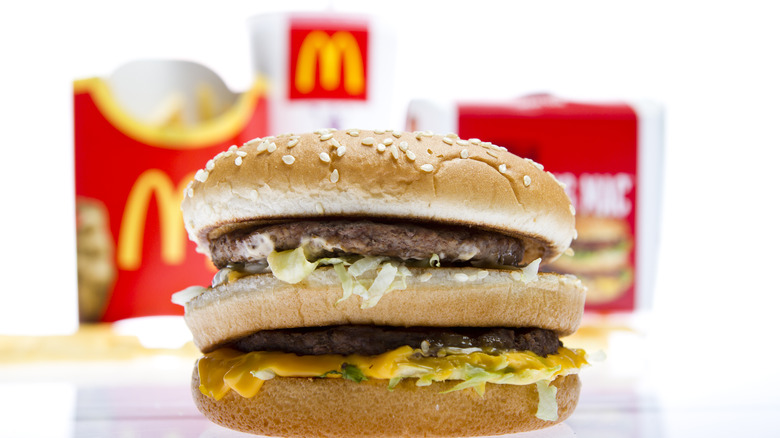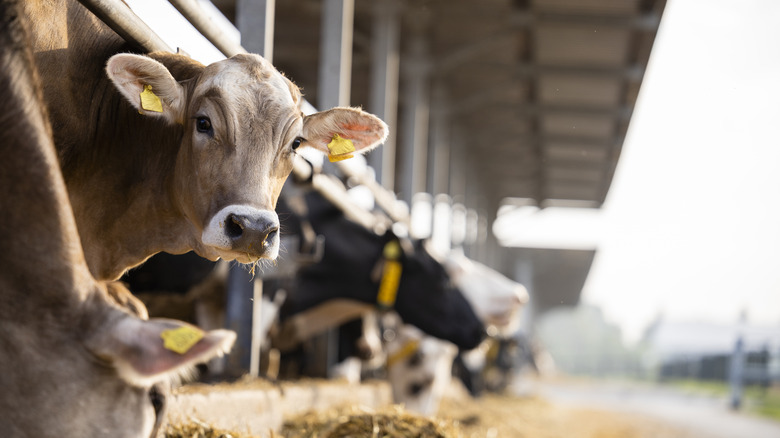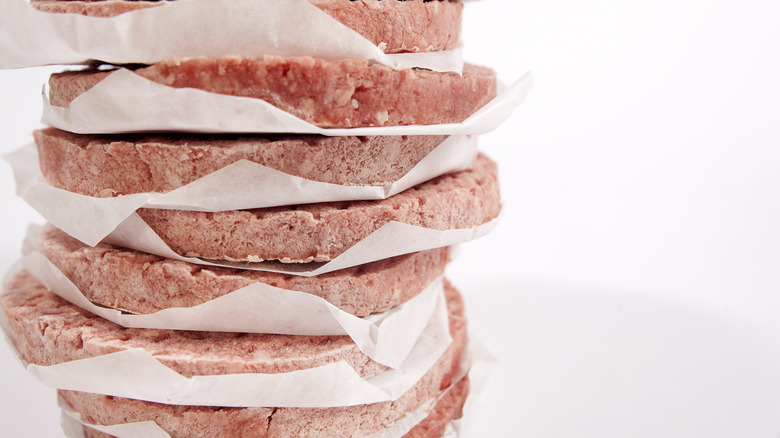Are McDonald's Burgers Really 100% Beef?
For decades, McDonald's golden arches have been synonymous with convenience. Still, the fast food chain has also been the subject of rumors about the ingredients and composition of its beloved burger patties. Consumers nowadays seem to demand more honesty and transparency about what goes into their meals, and one question looms large: What's really between the buns at McDonald's? Are the burgers truly 100% beef? The answer is yes.
McDonald's assures customers on its website that "every patty is 100% real beef with no fillers, additives, or preservatives." The company uses leftovers from cuts such as chuck, round, and sirloin to craft its burger patties, grinding and shaping them into the perfect hamburger. These patties are frozen at the supplier sites before being transported to restaurants, with an estimated two to three weeks between freezing and serving.
Mike Haracz, a former McDonald's corporate chef, confirmed as much in a viral TikTok clip. "I've been in the facilities where they make the meat patties...Here's the secret. It's just beef. It is 100% beef," Haracz explained. "There is absolutely nothing else."
Where does McDonald's get its meat?
Okay, so McDonald's beef is 100% real, but where does it come from? The company identifies its suppliers on its website, noting that it relies on a network of farms that value agriculture and "responsibly grown ingredients."
Lopez Foods is one of the company's main beef suppliers and has been for more than 30 years. Another is Keystone Foods, a Pennsylvania-based farm that provides McDonald's with more than 150 million pounds of beef, 300 million pounds of chicken, and 15 million pounds of fish each year. Keystone is also recognized as having pioneered the individual quick-freezing technique, preserving the taste and texture of its burgers when frozen. Additionally, McDonald's acknowledges its partnership with Keystone in producing its fan-favorite Chicken McNuggets.
@chefmikeharacz Replying to @whoopty28 Former #McDonalds corporate chef talks about whats in their burger patties. #mcdonaldssecrets #mcdonaldssecret #mcdonaldsmeat #mcdonaldsmeats #mcdonaldsburger #mcdonaldsburgers #McDonaldsmenu #mcdonaldslife #FastFood #FastFoodSecrets #fastfoodlife #BigMac #QuarterPounder #McDouble #DoubleCheeseburger #Hamburger #Cheeseburger #mcdonaldscheeseburger
"The manufacturing partners and the suppliers of McDonald's process the meat, they grind it in a certain way, they patty it in a certain way," Mike Haracz said in his TikTok video. "In the case of the ... cheeseburger, hamburger, McDouble, and the Big Mac, those patties are frozen and shipped to the restaurant frozen in the United States."
The Quarter Pounder, however, is gas-flushed to boost its shelf life a bit, refrigerated, and then shipped to the restaurants in that refrigerated state, Haracz continued. But, at the end of the day, he reiterated that the burgers are "just beef."
Why all the questions on quality?
If McDonald's burgers are 100% real beef, why all the questions about quality? Rumors about the grade of meat used for McDonald's burgers have popped up repeatedly throughout the years, most recently in August 2022 when a misleading allegation resurfaced on social media concerning a substance purportedly used by the global chain, The Associated Press reported. In the video, the poster accused McDonald's of making its burgers using "pink slime," or leftover cow trimmings treated with ammonium hydroxide to kill bacteria.
The company responded with a statement on its website, acknowledging the use of lean beef trimmings treated with ammonia prior to 2011. Since then, McDonald's insisted that the practice had ceased.
The pink slime uproar first took center stage back in 2012, when an investigative ABC News report claimed that the filler was being used by fast food chains and in school cafeterias across the country. Beef Products Inc. filed a $5.7 billion defamation lawsuit against the news outlet in response, arguing that the report cost them business. In 2017, ABC News' parent company, The Walt Disney Company, settled the suit for $177 million.


